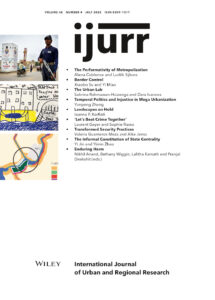In this essay I explore how regulatory standards for lead—which are designed to ensure the quality of drinking water—permit toxic harm to befall Philadelphia’s residents, especially communities of color. The bureaucratic practices of the city’s water department, I argue, render knowledge about toxic harm and risk both materially and legally illegible—not always despite, but also because of these standards. A class-action lawsuit filed against the City of Philadelphia over concerns about lead in the residents’ water supply is used to contextualize and explicate a predominant approach to environmental protection that is centered on creating standards to regulate toxic substances. As the case of Philadelphia shows, such an approach is prone to failure because ultimately the harm caused by a pollutant is only secondary to empirical questions about whether actionable thresholds are crossed and protocols breached.

